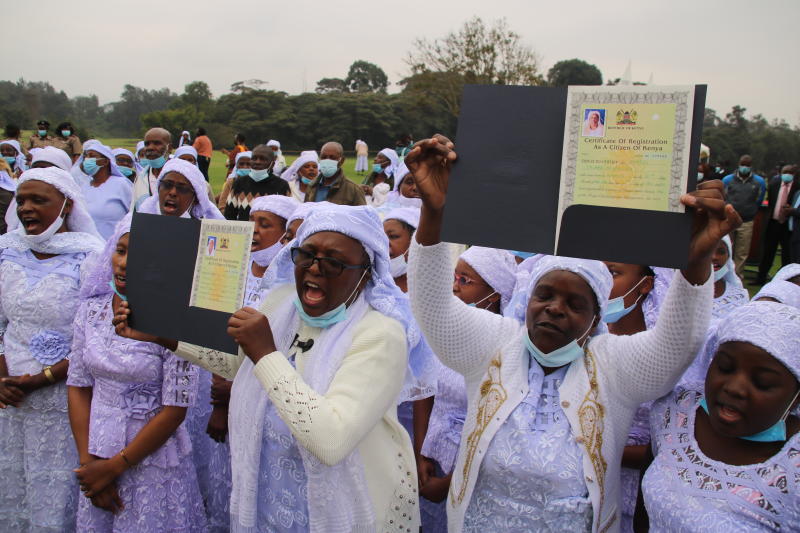×
The Standard e-Paper
Kenya’s Boldest Voice

For more than 60 years, the Shonas bestrode the country as stateless people, devoid of official recognition as citizens and denied essential services on account of their status.
Their ancestors had moved to Kenya in the late 1950s from Matebele, Zimbabwe and settled in the country. Another batch of missionaries, sent by Johane Masowe of Gospel Church of God, checked in between 1959 and 1961, settling in Kinoo and Kiambaa areas.